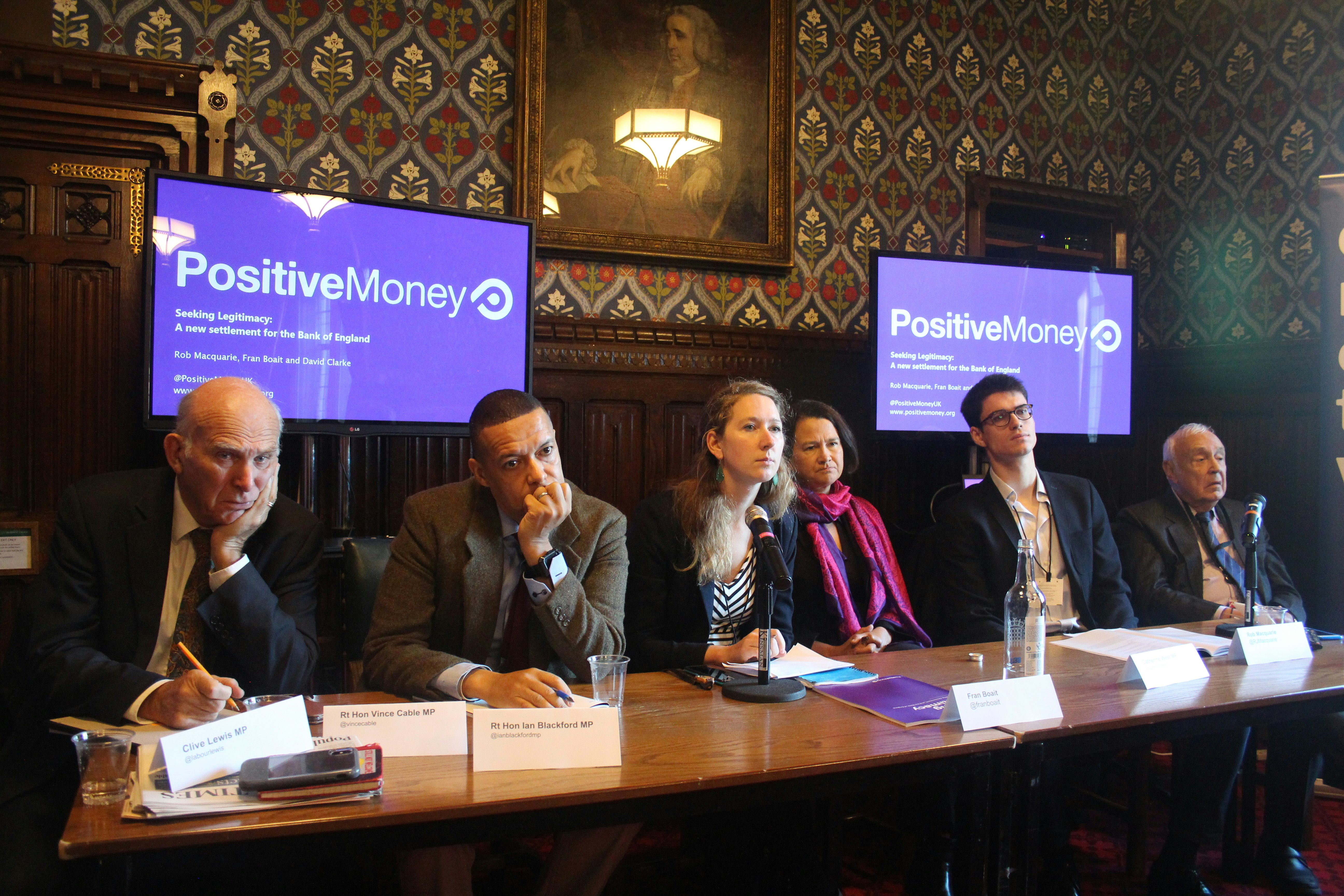New Positive Money report ‘Seeking Legitimacy’ launched in Parliament

After already making breakfast headlines in Reuters, City AM and Bloomberg, Positive Money launched our latest report, ‘Seeking Legitimacy: A new settlement for the Bank of England’, to a packed out audience in Parliament on Tuesday morning.
We were joined by influential figures from across Westminster, including Labour shadow Treasury minister Clive Lewis, former Liberal Democrat leader Vince Cable, SNP Commons leader Ian Blackford, Labour MP Catherine West as well as distinguished academic and crossbench peer Lord Robert Skidelsky.
Lead author and former Positive Money economist Rob Macquarie introduced the report, setting out the problems which have plagued economic policymaking since the crisis and the key areas for improving the legitimacy of the Bank of England.
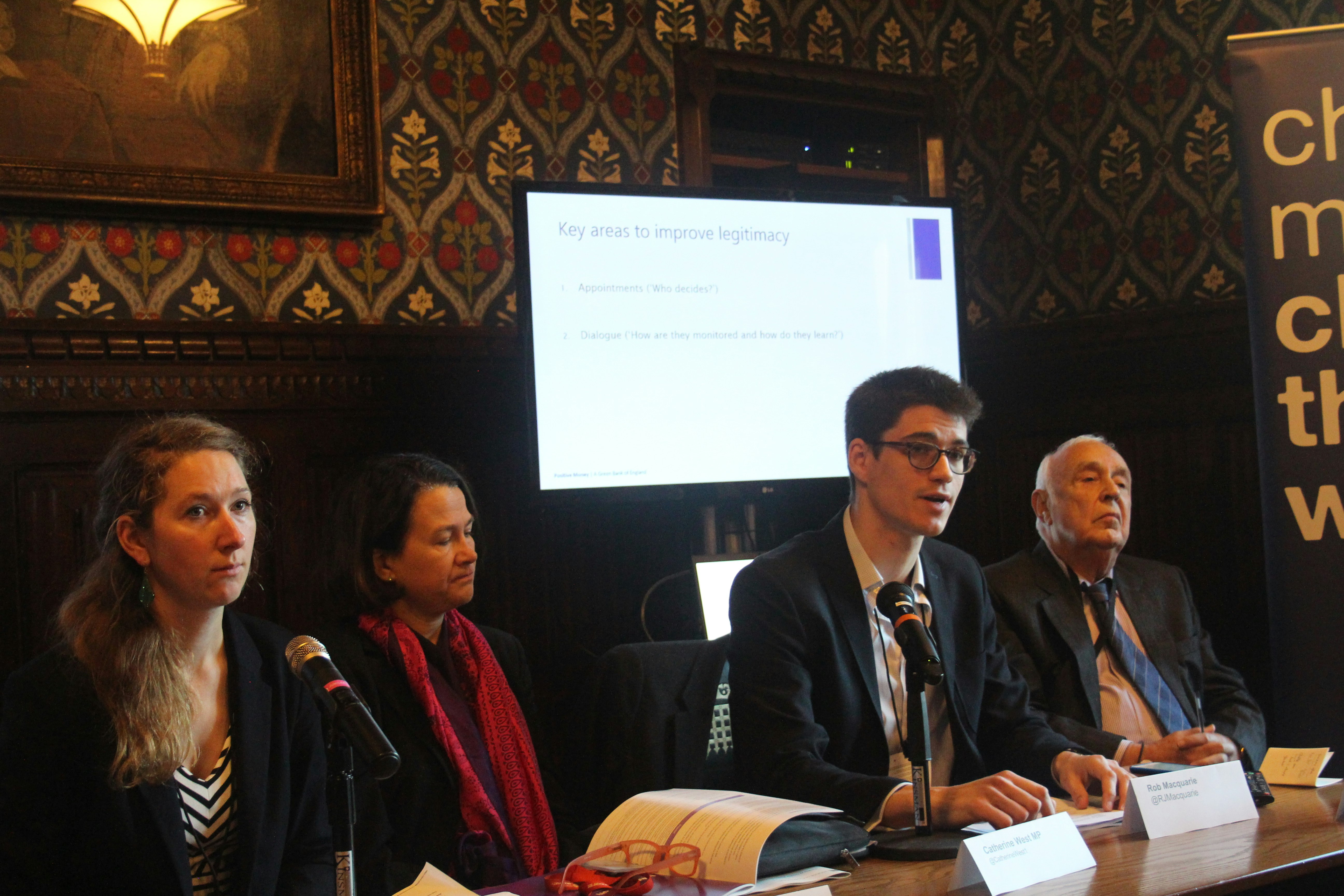
We then heard from Lord Skidelsky, who said he is “singing off the same hymn sheet” as Positive Money, sharing the same diagnosis of the failure of macroeconomics in recent years. He talked of how there has been a “huge transfer of power from politicians to technicians,” referring to the increased role of unelected central bank officials in determining the course of our economy. Lord Skidelsky agreed that macroeconomic policy wasn’t able to prevent the collapse of 2008 and that the way monetary policy has been practiced in the UK has mainly been to benefit the rich.
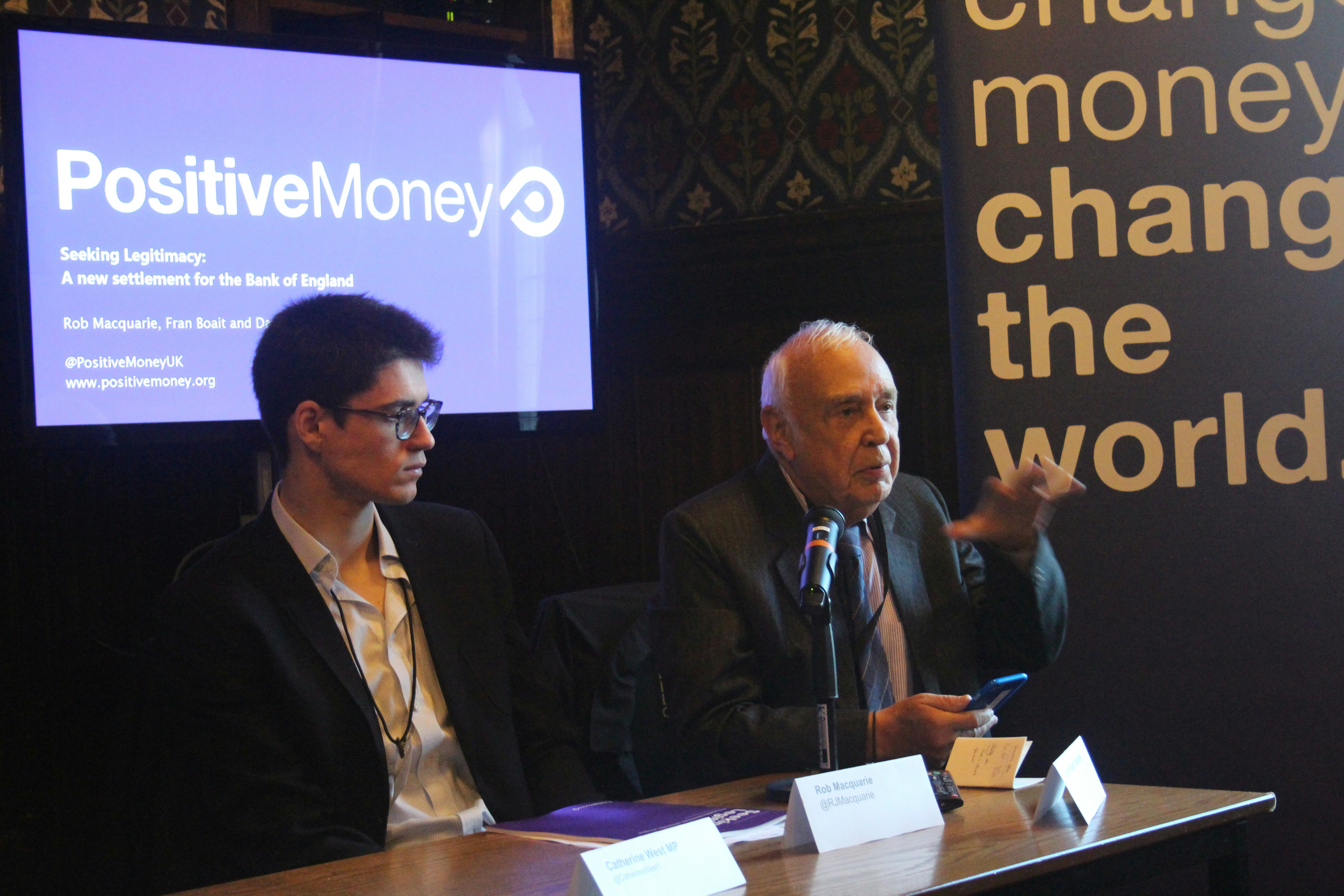
SNP Westminster leader Ian Blackford agreed with Lord Skidelsky, saying “politicians have passed responsibility to unelected technocrats.” In a scathing criticism of the Bank of England’s quantitative easing (QE) policy, he said “we’ve rewarded those who caused caused the financial crash,“ even going as far as to suggest that we might not have had Brexit if it wasn’t for this response to the crisis.
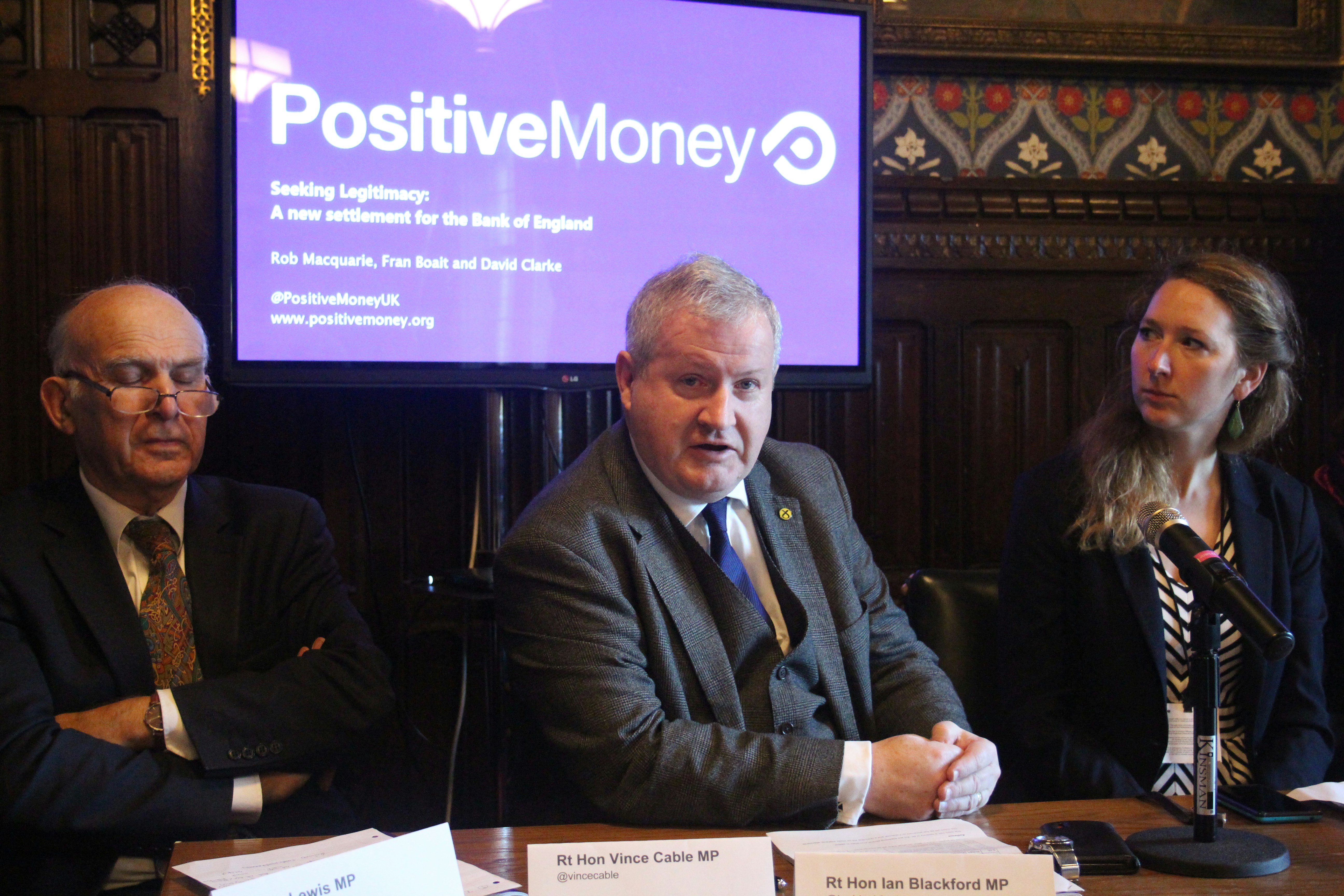
Ian spoke of his frustration in trying to provide scrutiny over the Bank of England’s work, saying that the QE debate he secured in Parliament “was one of the most depressing experiences I’ve ever had,” as government ministers seemed poorly informed on the central bank’s operations. He therefore said: “I really do welcome the report, it’s an important contribution to the debate.”
Vince Cable provided balance with a more orthodox defense of central bank independence. However, he made some interesting remarks, including the admission that the Coalition government he served as Business Secretary in should have taken advantage of low interest rates to borrow more to invest. He said that it is very difficult to see conventional monetary policy and asset purchases being used to combat the next downturn, predicting that helicopter money “could happen here”. He also confirmed that he doesn’t think the Bank of England should have bought bonds in fossil fuel companies, as it did with its corporate QE programme.
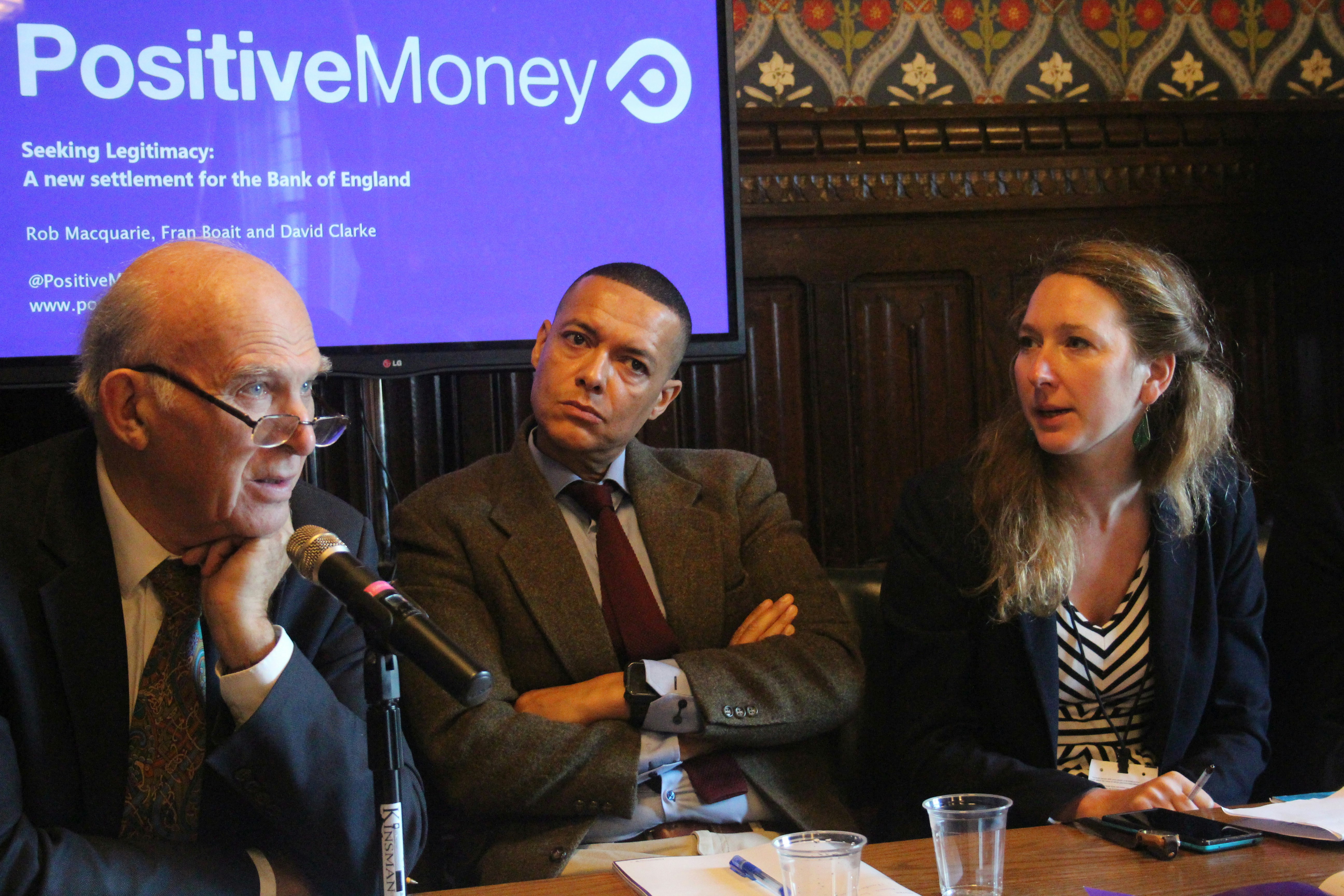
Next up was Clive Lewis, who welcomed the report because he has “never been completely comfortable with handing over full independence to the central bank”, arguing that “the way of treating central bankers as high priests has to end.”
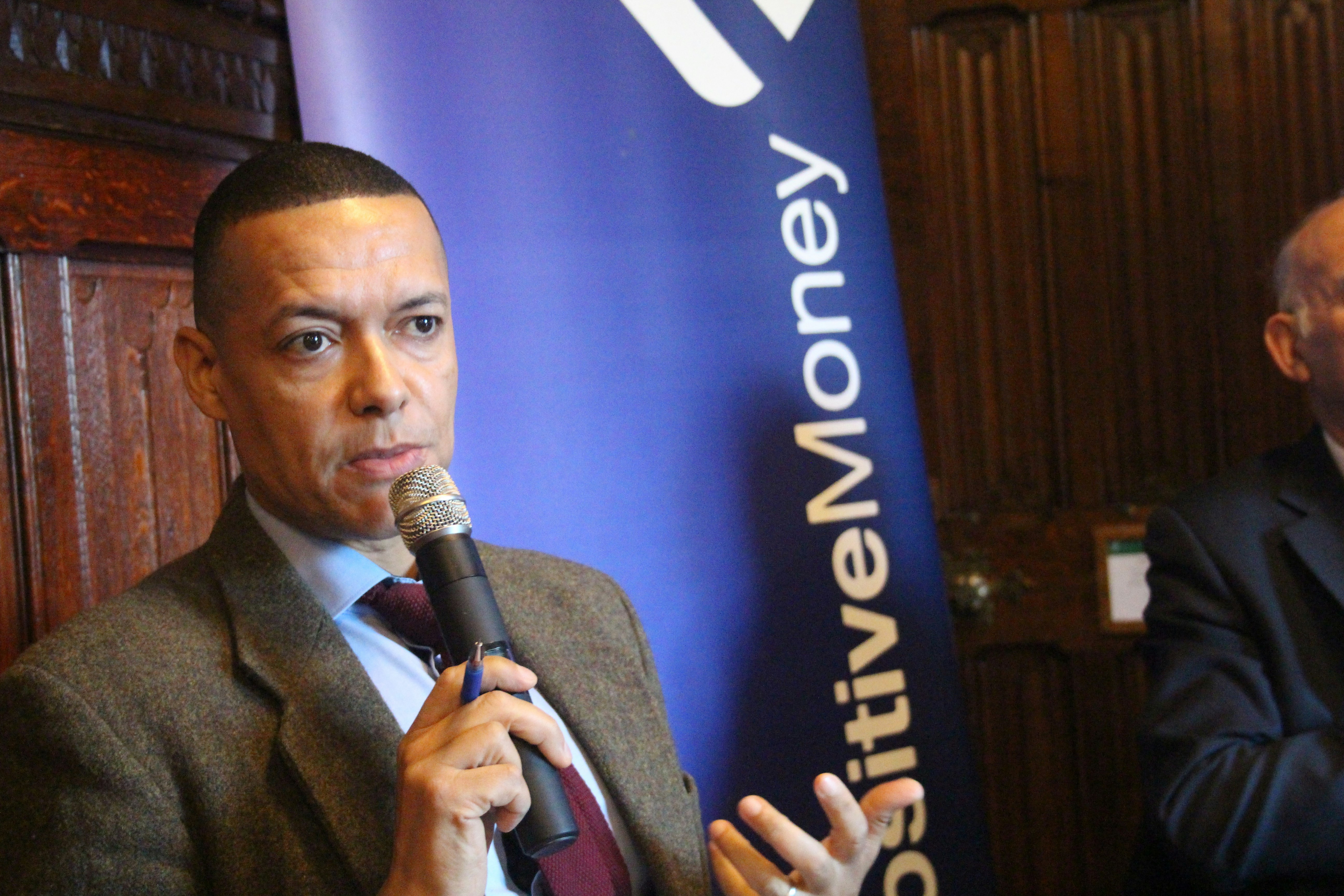
Clive said: “I think the good thing about this report is that if these two key areas, productivity and decarbonisation, were to come into play, the Bank of England would be one of the most powerful central banks in the world.”
“What this report shows is that there needs to be a better balance in terms of accountability,” he added. “I welcome this report because it’s not throwing out the baby with the bath water.”
Clive also praised the report’s section on credit policy, saying that credit guidance “is going to be critical”.
He concluded that making sure we can make the Bank of England as accountable as possible “is the right way forward” and that the report “goes some way to achieving that.”
We then heard some great questions from the audience, which received thoughtful responses from all members of the panel. Thank you to all of the Positive Money supporters who helped give this extremely timely report the launch it deserved. Stay tuned for a full video of the event in the next few days!
